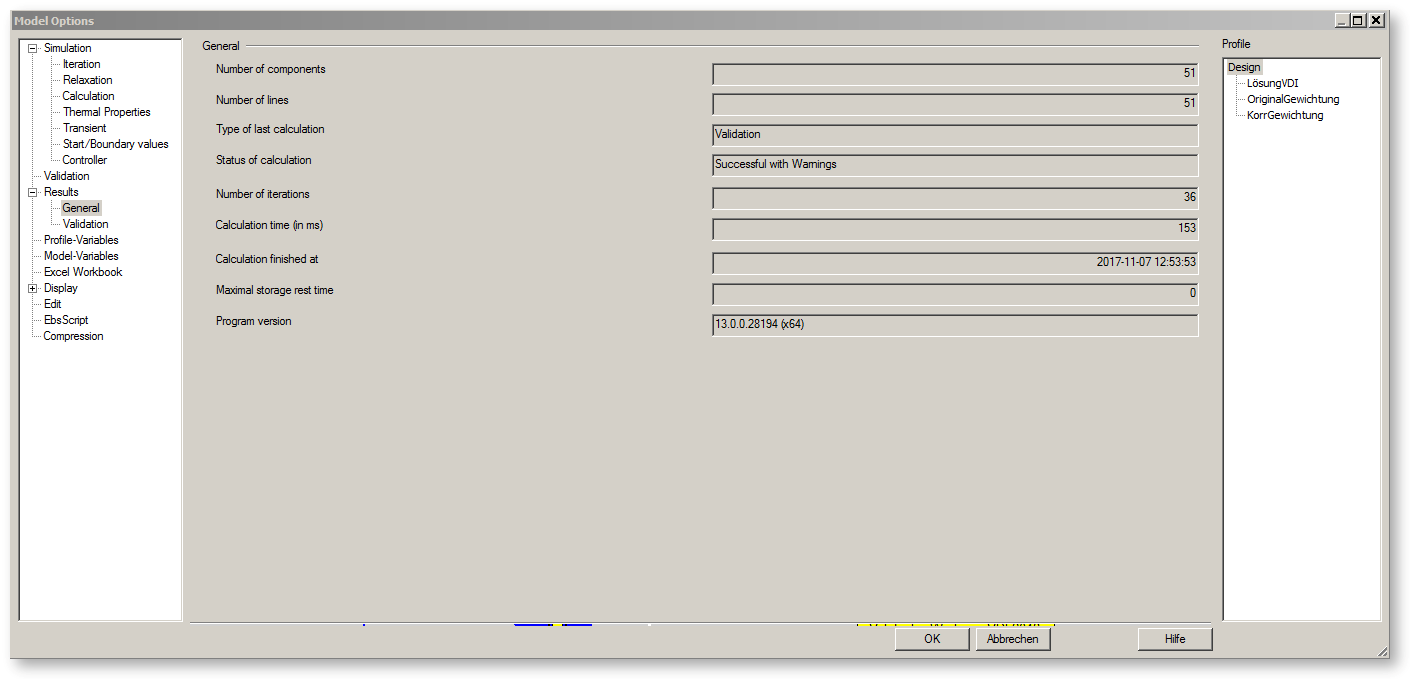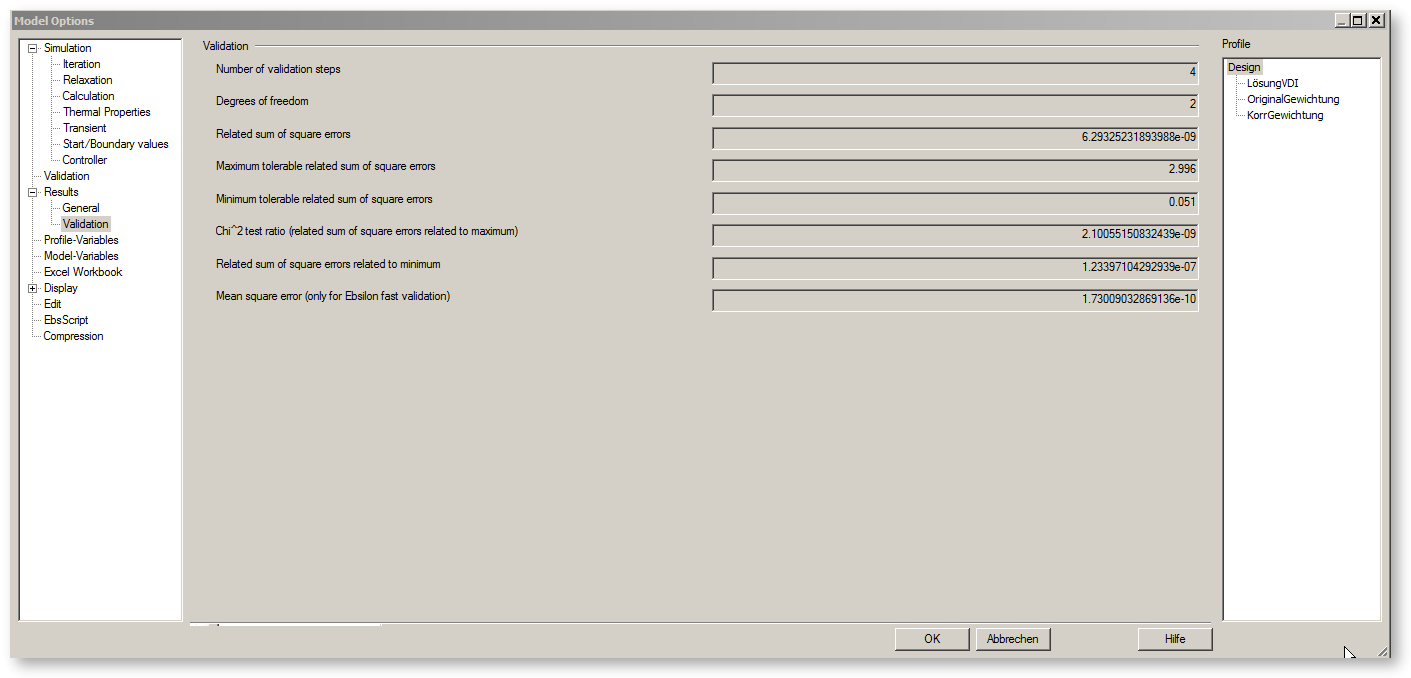

The general results can be viewed on the tab "Results" under "Extras"à "Model Options".
There are two entries present at this point: "General" and "Validation".

The entry "General" is relevant both for simulation as well as for validation and contains general information about the calculated model, type and status of the calculation and specifications about the time and number of iteration steps.

The result values relevant for the validation are
Mean square error
Number of degrees of freedom
Chi^2-test ratio (with reference to mean square error divided by the value of the Fisher-distribution.)
Related sum of square errors
Number of validation steps
The characteristics can also be shown in the text fields in the model. Expressions in the text fields, which are enclosed in braces { }, are used by EBSILON®Professional for the display. The result values can thereby be accessed through the following expressions:
|
{@calcoptions.res.type} |
Calculation type (1=Simulation, 2=Validation, 3=Optimization) |
|
{@calcoptions.res.status} |
Calculation status (0=successful, 1=warnings, 2=not converged, 3=not converged with warnings, 4=error in calculation, 5=error before calculation, 6=general error) |
|
{@calcoptions.res.sqval} |
Mean square error |
|
{@calcoptions.res.freigr} |
Number of degrees of freedom |
|
{@calcoptions.res.iter} |
Number of iteration steps |
|
{@calcoptions.res.time} |
Computing time (in milliseconds) |
|
{@calcoptions.res.chi2} |
Chi²-test ratio |
|
{@calcoptions.res.valiter} |
Number of validation steps |
|
{@calcoptions.res.sumsqerr} |
Related sum of square errors |
|
{@calcoptions.res.tolsumsqerr} |
Maximum tolerable related sum of square errors |
|
{@calcoptions.res.mintolsumsqerr} |
Minimum tolerable related sum of square errors |
|
{@calcoptions.res.valiter} |
Number of validation steps |
To be able to estimate the quality of a reconciliation calculation according to VDI 2048, the relative error sum of squares sumsqerr calculated out of the model is compared to the value of the
95%-quantile of the F-distribution at the corresponding number of degrees of freedom which, according to VDI 2048, represents an upper limit for the plausibility of the confidence intervals.
This value is called tolsumsqerr, the ratio
sumsqerr / tolsumsqerr is called the Chi² test ratio chi2.
If it becomes greater than 1, there are measuring points in the model whose accuracy has been overrated. Their confidence interval must be widened accordingly.
There is also a lower limit for the plausibility of the confidence intervals, as well the 5%-Quantile of the F-distribution minsumsqerr and the corresponding ratio
sumsqerr / minsumsqerr as chi2min
If this value becomes smaller than 1, measured values are more accurate than assumed. In this case, the confidence intervals can be decreased.